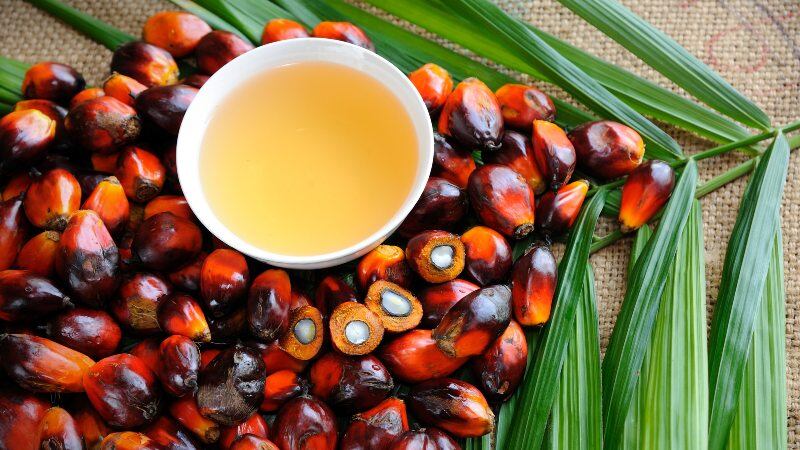United States Customs and Border Protection (CBP) announced earlier this year that it had placed a detention order on palm oil and related products from Malaysia’s government-linked FGV Holdings Berhad (formerly Felda Global Ventures Holdings – FELDA is the country’s Federal Land Development Authority) as it believed the firm to be using forced labour to procure its palm oil.
“The use of forced labour in the production of such a ubiquitous product [as palm oil] allows companies to profit from the abuse of vulnerable workers. [These] companies are creating unfair competition for legitimately sourced goods and exposing the public to products that fail to meet ethical standards,” said CBP Office of Trade Executive Assistant Commissioner Brenda Smith in the official detention statement, which effectively banned all FGV palm products from entering the US market.
FGV has refuted these charges and issued a statement citing its ‘disappointment’ in the decision and saying it would take steps to clear its name.
“FGV has been taking concrete steps over the past several years in demonstrating its commitment to respect human rights and to uphold labour standards. [The company] does not tolerate any form of human rights infringements or criminal offense in its operations,” it said.
Experts are urging for FGV and the palm oil sector as a whole to make sure that more thorough and comprehensive engagement takes place with the United States on this matter, as the US views on labour issues could end up being another major challenge for the industry if not handled properly.
“The industry more needs to make sure that direct and comprehensive engagement takes place – don’t rely on diplomatic relations and don’t go through any middle person, there really must be direct engagement,” trade consultancy firm ITS Global Director and palm oil industry expert Khalil Hegarty told FoodNavigator-Asia.
“Importantly, don’t assume that what is technically the ‘truth’ will win the day [and be complacent about it]. This is as much about politics as it is about facts - The case of palm oil in the European Union has demonstrated clearly that politics is more important than facts when it comes to trade.
“For FGV particularly right now, there is also a need to rebut every single claim that CBP has put forth. But beyond CBP, the US Department of Labour is the department that maintains a ‘List of Goods Produced by Child Labour or Forced Labour’. Palm oil has been on and off the list for the past five to six years and there needs to be proper communication here too.”
He highlighted that whilst environmental and sustainability issues are what the EU has been using to attack the palm oil sector, the US is much more concerned with labour issues and failure to resolve this could well escalate even further when US President-elect Joe Biden comes into office next year.
“The Democrats are very associated with organised labour and have put a lot of effort into labour internationally as well. The Biden administration will have a strong labour focus and may ramp up action against palm oil as well as other commodities,” said Hegarty.
“There could well be more scrutiny that takes place, things like the Department of Labour looking more closely at supply chains, or USAID programmes to eradicate South East Asia supply chain child or forced labour, or even more situations like happened with FGV – it all depends on who gets appointed as Labour Secretary and what the concrete plans are.”
Warning signs since 2015
This isn’t the first time FGV has been publicly called out for labour issues either – there was a similar accusation levelled against the firm, also back in 2015, and the Roundtable on Sustainable Palm Oil (RSPO) Complaints panel since found FGV to be non-compliant with its P&C based on its audits, suspending it from RSPO membership since January this year.
FGV submitted an appeal, which was not accepted, and then submitted an action plan for follow up which is currently pending an update by the RSPO Investigations and Monitoring Unit.
That said, Hegarty believes that the labour issue is eventually resolvable in the United States as long as there is sufficient proper engagement – though the same cannot be said for the situation in the EU.
“Here, you’re dealing with a situation where people can be convinced when you show you’re doing it right – for example Indonesia is working with the International Labour Organisation and also has small projects with the US Department of Labour, so has appeared far less on the forced labour list than Malaysia (though it appeared for the first time this year),” he said.
“This is different from the situation in the EU – that’s a way tougher battle as there is a lot of opposition from the rapeseed and sunflower growers plus the political forces at play are far greater.
“Both the labour and environmental issues are basically each a war of attrition for the palm oil industry – [each side will keep trying] to wear the other down, [but] the growers in EU make it more difficult as they are not going to give up any time soon.”





